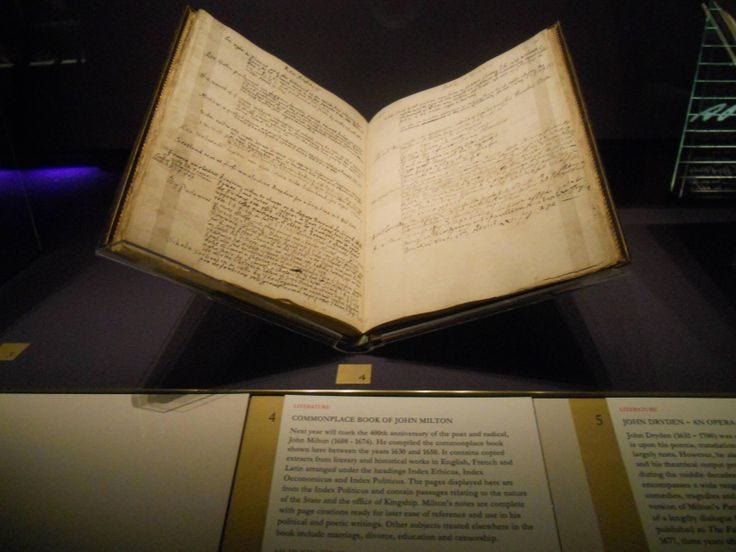Kierkegaard: How to Sculpt Your Own Soul
Yesterday I was clever and I wanted to change the world; Today I’m wise and I want to change myself.
At school we are taught the laws of physics; the laws of nature; and the laws of chemistry. We are told that we need to know these laws so we can understand how the world around us works. But, more often than not, we are not taught anything about the laws of our soul, spirit, or what others refer to as 'consciousness’.
However you may want to call it, our inner life, so much praised by poets and philosophers, has its own governing laws. Those laws must be taught, studied, and practiced if we want to lead a meaningful and fulfilling life. It’s impossible to imagine an aerospace engineer who doesn’t know the laws of physics. In the same way, it’s impossible to lead a meaningful life without knowing the laws that govern our inner world.
But, what are those laws of our inner world that can help us lead a more purposeful life?
In his influential work Fear & Trembling, the Danish philosopher Søren Kierkegaard tells us about the nature of our inner world and gives us hints on how we can find meaning in life.
I would love to share a passage from his masterpiece Fear & Trembling in full:
An old proverb pertaining to the outward and visible world says:
'Only one who works gets bread.' Oddly enough, the saying doesn't apply in the world to which it most properly belongs. For the outward world is subject to the law of imperfection; there it happens time and again that one who gets bread is one who does not work, that one who sleeps gets it in greater abundance than one who labours. In the outward world everything belongs to whoever has it, the outward world is subject to the law of indifference and the genie of the ring obeys the one who wears it, whether he be a Noureddin or an Aladdin, and whoever holds the world's treasures does so however he came by them.
It is otherwise in the world of spirit. Here there prevails an eternal divine order, here it does not rain on the just and the unjust alike, here the sun does not shine on both good and evil, here only one who works gets bread, and only one who knows anguish finds rest, only one who descends to the underworld saves the loved one, only one who draws the knife gets Isaac.
He who will not work does not get bread, but will be deluded, as the gods deluded Orpheus with an airy figure in place of the beloved, deluded him because he was tender-hearted, not courageous, deluded him because he was a lyre-player, not a man.
This paragraph comes from a chapter called Problemata. It shook my soul to the core when I first read it. This is the true purpose of thinkers like Kierkegaard, those whom we call ‘geniuses’. Such thinkers articulate to us ideas that we intuitively perceive on our own, but don’t know how to put those ideas into words ourselves.
Kierkegaard points to us a phenomenon that we witness on an almost daily basis. Only a heartless person with callous eyes would refuse to see that ‘there it happens time and again that one who gets bread is one who does not work, that one who sleeps gets it in greater abundance than one who labours.’
In some sense, Kierkegaard comes to a Stoic idea when he says ‘the outward world is subject to the law of indifference’ since it was Stoics who wrote that there are things that are good (virtues), things that are bad (vices) and things that are indifferent (wealth, fame, and even life and death).
But, our Danish genius goes one step further and shows us that our inner world works radically differently from the indifferent external world.
It is otherwise in the world of spirit. Here there prevails an eternal divine order, here it does not rain on the just and the unjust alike, here the sun does not shine on both good and evil, here only one who works gets bread, and only one who knows anguish finds rest…
How many times have we seen a rich person wallowing in misery or a modest person being grateful for little pleasures in life? In fact, we’re repulsed when we see a privileged person who’s unaware of his fortune, but we admire a person who acts courageously despite the adversity they face in life.
We admire the latter because displaying fortitude during hardships requires a disciplined character. Most importantly, it requires a disciplined practice of virtues. This is what Kierkegaard meant when he wrote that in the divine order of our inner world ‘the sun doesn’t shine on both good and evil’ alike. In his Fear & Trembling he drew a clear line between the laws that reign over our inner and outer worlds from each other.
‘In here only one who works gets bread’ says Johannes de Silentio (the pseudonym that Kierkegaard used when he published his work) about our inner life, but what does it mean to work on yourself? What does “to work” mean in our inner world?
“Go back inside yourself and look: if you do not yet see yourself as beautiful, then do as the sculptor does with a statue he wants to make beautiful; he chisels away one part, and levels off another, makes one spot smooth and another clear, until he shows forth a beautiful face on the statue.
Like him, remove what is superfluous, straighten what is crooked, clean up what is dark and make it bright, and never stop sculpting your own statue, until the godlike splendor of virtue shines forth to you.”
~ Pierre Hadot, Plotinus
‘To work on our soul’ means that we need to sculpt our inner beings in the same way Michelangelo sculpted his divine-like statues. We need to “chisel away one part” of our character and “level off another”. We need to “straighten what is crooked” (lack of discipline in following virtues, for example) and “clean up what is dark and make it bright” (remove vices and replace them with virtues).
Plotinus and Kierkegaard lived 18 centuries apart, on different parts of the European continent, but they have one thing to say: ‘The laws of inner world exist and they are different from the laws of the outer world that we experience’
Those laws are disregarded during our school years and thus produce individuals who become miserable businessmen or meaningless artists later in life.
If the laws of physics can be found in textbooks and academic articles, the laws of our inner world are explored in things that we call Beautiful. Beauty has power not only to articulate to ourselves those eternal inner laws but also teach us what ‘to chisel', what to ‘level off’ and ‘what to make bright’ in us to use Plotinus’s words. This is why Dostoyevsky famously said that ‘Beauty will save the world’, because Beauty doesn’t merely describe who we are but it also points to us who we could potentially become.
To perpetuate the image of "an ordinary man," to represent an individual, is not art. The one thing worthy of detaining our attention, and of being fixed in an immortal work of art, can only be the beauty of an ideal form. If one is going to sculpt the figure of a man, let him gather together everything beautiful he can find.
Art must not copy reality: in that case, it would only be an inferior copy of that copy which is the object perceived by our senses. The true function of art is "heuristic": through the work of art, we discover, or "invent” the eternal model, the Ideal.
~ Pierre Hadot, Plotinus
Sir Roger Scruton once said that ‘Beauty is vanishing from our world because we live as though it did not matter.’ Scruton unfortunately passed away in 2020, but if I could ask him one question it would be: ‘What if the reason why Beauty is vanishing is because we live as though our inner world did not matter?’
Kierkegaard ends his passage by reminding us of the story of Orpheus, who descends into the underworld to rescue his beloved Eurydice. Hades and Persephone agree to return Eurydice to him under one condition: Orpheus cannot look back until they both return to the upper world. They put Orpheus’s courage to a test. And as he and Eurydice ascend to upper world, at the very last moment, when they both see the gates that will bring them back together, Orpheus succumbs to his weakness. He turns around to see if his Love is behind him and sees her vanishing. He fails the test.
We need courage to sculpt ourselves. We have no right to look back. Many people look at the outer world and see its injustices and resort to political activism. Their journey always reminds me of the Persian poet Rumi who once said:
“Yesterday I was clever and I wanted to change the world; Today I’m wise and I want to change myself.”
What we witness today is that we’re neither clever enough to solve injustices around us nor wise enough to realise the hunger we have for inner change.
The revered Michelangelo wrote in his notebook:
I saw the angel in the marble and carved until I set him free.
We need to remind ourselves that we must set free our inner ‘angel’ which hides in the marble that Kierkegaard calls ‘our inner world’.
Proofread and edited by Lisa Statler
Do you want to keep a journal? (Patreon)
I’ve been journaling for the past 15 years of my life. By saying this I mean that for the past decade and a half, I’ve been sitting down, consistently, every day, and writing my thoughts and ideas into my notebook.
If you would like to begin your journaling journey, but don’t know where to start, how to stay consistent, or which type of journaling suits you, consider subscribing to my Patreon page.
I’ve made several ‘Guided journaling’ videos, where we sit down and journal together, I give journaling tips based on science, and I share some very personal pieces of advice based on my own journey.






This was so moving, thank you for posting this. ❤️✨️🎶
Thank you
This was marvelous